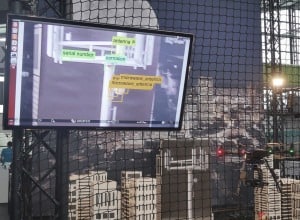Company announces $200 million investment in world IoT headquarters, a blockchain service, and strategic partnerships.
IBM’s Internet of Things offerings just got a lot bigger.
The company announced Oct. 3 that they will invest $200 million in a new world IoT headquarters in Munich, Germany; rolled out a blockchain service, and announced three IoT partnerships to leverage IBM Watson, their cognitive computing platform.
The investments are part of IBM’s strategy to invest $3 billion in the IoT. Last year IBM also acquired the Weather Channel, which for an IoT application has use cases in supply chain optimization.
The new IBM Watson IoT headquarters will be based in Munich, Germany – the heart of the Industrie 4.0 initiative. The headquarters will be home to the first ever “Cognitive IoT Collaboratories” – hands-on industry labs where clients and partners can work with IBM’s 1,000 Munich-based researchers, engineers, developers, and business experts on IoT projects in the automotive, electronics, manufacturing, healthcare and insurance industries.
The company said the IoT represents a $1.7 trillion market opportunity by 2020, and its Watson cognitive platform, which can run in the cloud, is the proper tool for analyzing data from IoT sensors.
IBM said it has 6,000 global clients using its Watson IoT solutions and services, up from 4,000 just eight months ago.
IBM Watson and blockchain
IBM also announced their Watson-powered blockchain service is now available to enterprise customers. The blockchain service connects IoT data to a secure, private blockchain through the IBM Watson IoT platform. The service is designed to enable companies to do business across a network of people and goods, with a minimum of complexity, and without increasing costs.
“With 55% of respondents stating that IoT is strategic to their business, we can see that the market is pivoting away from proof of concept projects to scalable deployments that are incorporating cloud, analytics, and security capabilities,” said Vernon Turner, IBM’s senior vice president of enterprise systems. “IBM’s investment to bring its Watson cognitive computing technologies to the IoT is clearly gaining traction with companies around the world which are launching their own IoT solutions.”
One company. Kouvola Innovation, based in Finland, is already experimenting with using the Watson blockchain. Kouvola, or Kinno, is developing a solution that tracks, monitors, and reports on container status and location, and optimizes packing and transfer of shipments through shipping lanes.
In September, IBM’s global financing unit launched a blockchain project expected to free approximately $100 million in capital through better dispute resolution.
IoT security, new NLP interface, and a cognitive cookbook
IBM also introduced a new set of IoT tools that offer security solutions and services. With malware and DDoS attacks using IoT devices making headlines, security is more important than ever. The new tools provide edge-to-edge visibility, advanced security assessment, instant alerts, anomaly detection, and customizable operational responses, the company stated.
A new natural language also has been introduced for Watson’s IoT platform. It will be used to develop voice interfaces for homes, vehicles, and offices.
The final new offering is what the company is calling the Cognitive IoT Cookbook. This resource contains a collection of “recipes” for developers that offer best practices for cognitive IoT challenges and solutions. The recipes use Watson’s Natural Language APIs.
Watson IoT Partnerships
IBM lso announced several new IoT partnerships, including:
Schaeffler, a Germany-based manufacture of precision parts for the industrial and automotive sectors. Schaeffler will accelerate digital transformation of its entire operations using IBM Watson’s cognitive intelligence platform. The goal of the partnership is to build virtual models representing entire industrial systems, so as to enable new approaches to product design, manufacturing and aftersales service. “We are entering an age where parts can monitor and evaluate their own performance and even order their own replacement when necessary,” noted Prof. Dr.-Ing. Peter Gutzmer, deputy CEO and CTO of Schaeffler
Aerialtronics, a Netherlands-based manufacturer of drones used to monitor enterprise assets, such as inspecting wind turbines, oil rigs, cell towers, and monitoring traffic. Aerialtronics will use the IBM Watson IoT Platform and visual recognition APIs to analyze images and identify specific areas of concern such as loose or frayed cabling and damaged equipment that could impact the quality of telecommunications service to consumers.
Thomas Jefferson University Hospitals, based in Philadelphia, will use Watson IoT for cognitive hospitals designed to enhance the patient experience and enhance personalized care. Patients can use in-room speakers to make their hospital stay more comfortable, such as by operating lights, window blinds, or asking questions.
Related:
Why AI will become an essential business tool





























